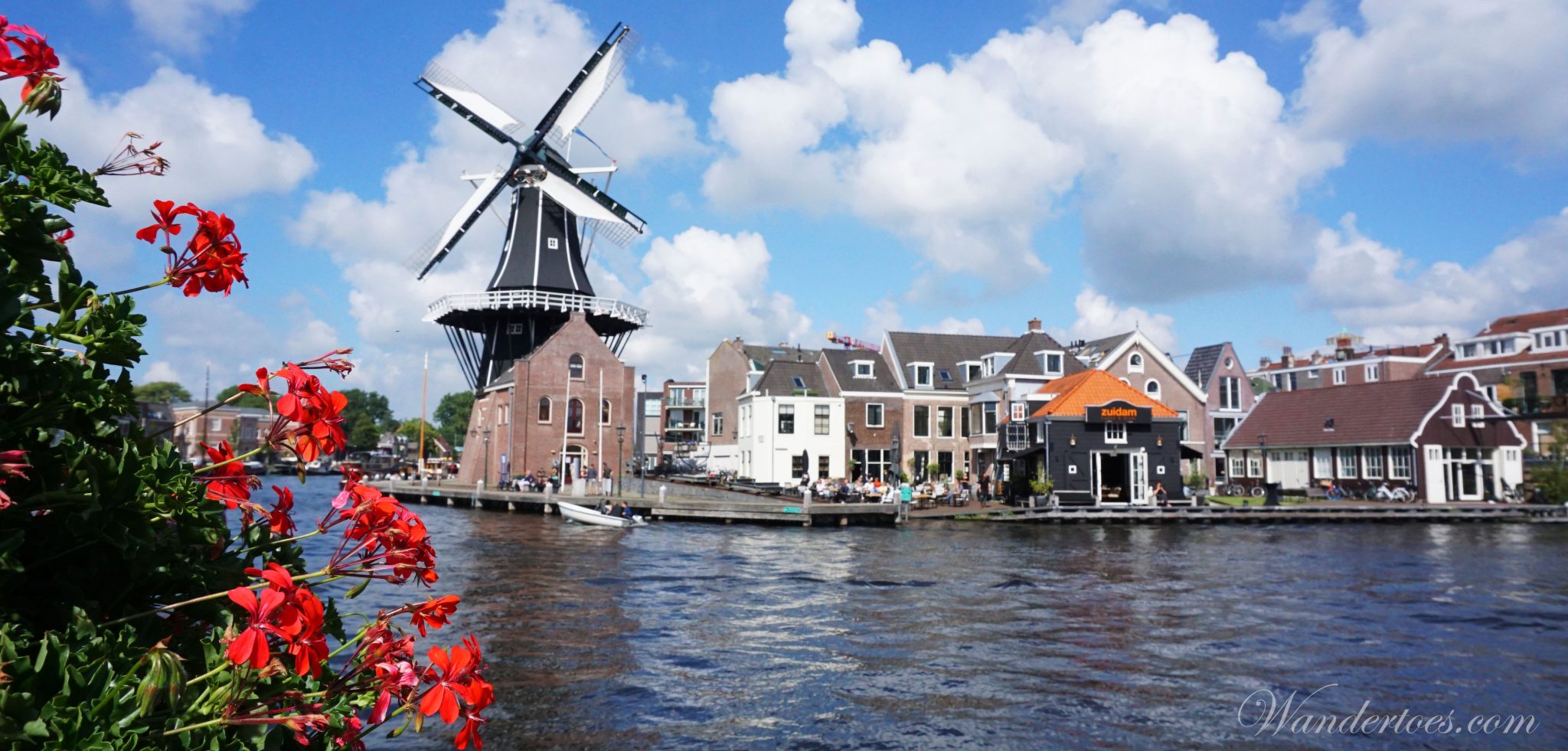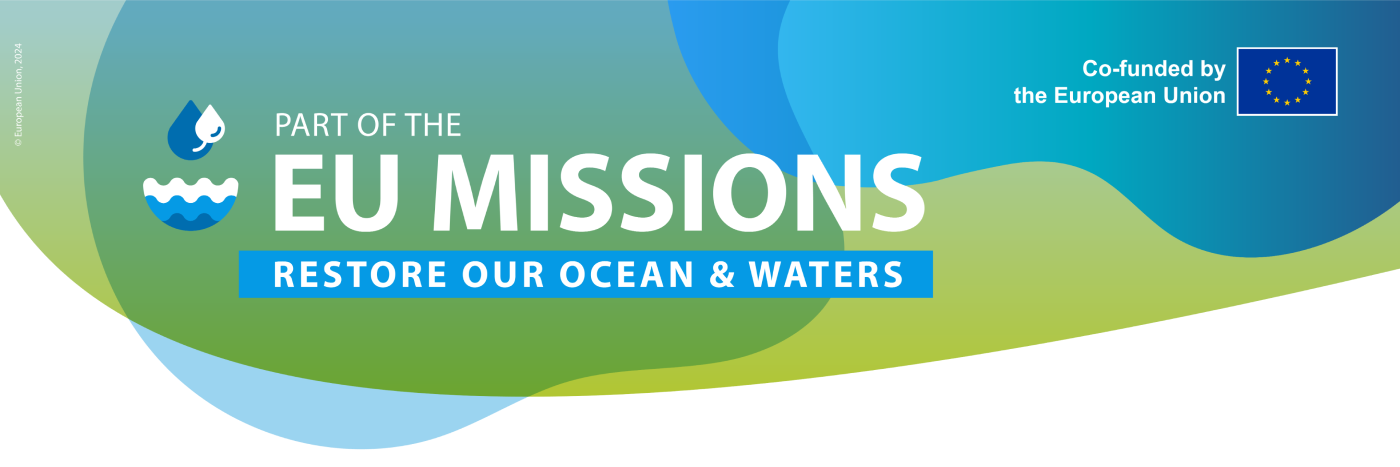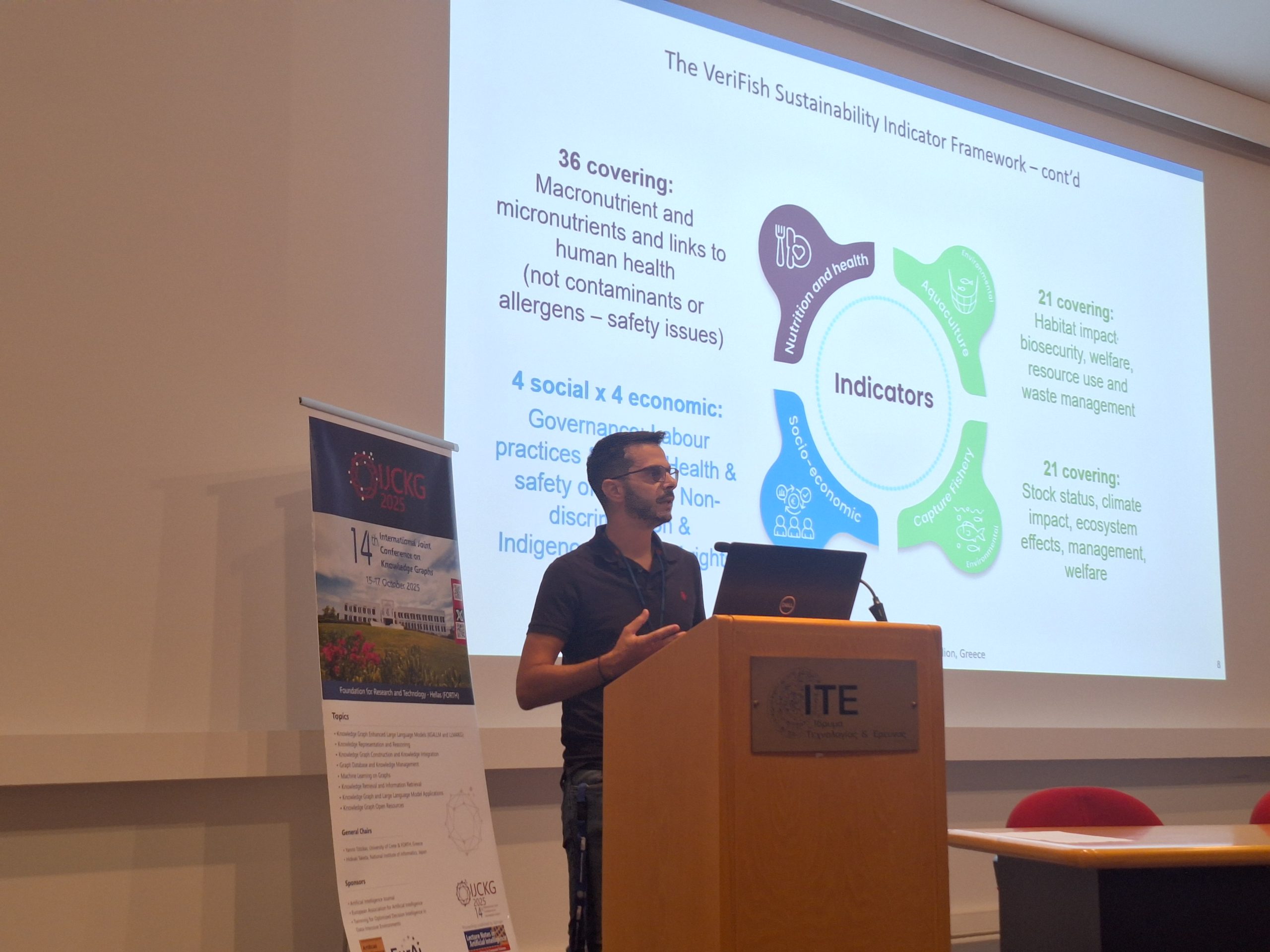VeriFish and Mr.Goodfish3.0 at UNOC3 – Virtual Side Event Summary
Date: 12 June 2025
Occasion: UN Ocean Conference 3 (UNOC3) – Virtual Side Event
Title: Can we still eat seafood? Adopting responsible consumption and production of seafood and aquaculture products to protect marine biodiversity
Watch the recording:
As part of the official programme of UNOC3, VeriFish and Mr.Goodfish3.0 co-organised a virtual side event to examine the role of sustainable seafood consumption in the broader mission to protect marine biodiversity and support climate-resilient aquatic food systems.
🔹 A Timely and Global Dialogue
The session brought together voices from aquaculture, food science, and animal welfare, with a shared goal:
How can we support responsible consumption and production of seafood and aquaculture products to restore ocean health?
🎤 Project Presentations
- VeriFish – Sara Pittonet Gaiarin, Trust-IT Services
Presented the VeriFish approach to verifiable sustainability indicators and consumer engagement tools, built to empower stakeholders across the seafood value chain. - Mr.Goodfish3.0 – Hélène Buisson, Nausicaá – Centre National de la Mer
Introduced the programme’s newest tools and campaigns aimed at promoting responsible seafood choices.
💬 Panel Discussion
Moderated by Clara Boissenin (Ecsite), the panel featured:
- Alistair Lane, European Aquaculture Society
- Michelle Boonstra, Catch Welfare Platform
- Dr. Siân Astley, EuroFIR – European Food Information Resource
The conversation addressed aquaculture innovation, seafood welfare, nutrition, and the critical role of communication in changing consumption patterns.
🔹 Announcement of a Voluntary Ocean Commitment
At the end of the event, Daniel Hayes from the Cyprus Marine and Maritime Institute (CMMI) formally announced a Voluntary Ocean Commitment on behalf of the organising projects.
This commitment reinforces our pledge to contribute to the UN Decade of Ocean Science for Sustainable Development and the EU Mission “Restore our Ocean and Waters by 2030.”
🔗 Access the commitment: View on SDG Partnerships Platform
🔹 Key Takeaways
- Data and trust: Scientific evidence and verifiable indicators must be at the heart of seafood communication.
- Inclusive transition: All actors—from aquaculture to gastronomy—must be involved in building sustainable food systems.
- Empowered citizens: Consumers need tools, not guilt, to make better choices.
- Ocean literacy: Projects like VeriFish and Mr.Goodfish3.0 demonstrate how creative communication tools can support long-term behavioural change.



